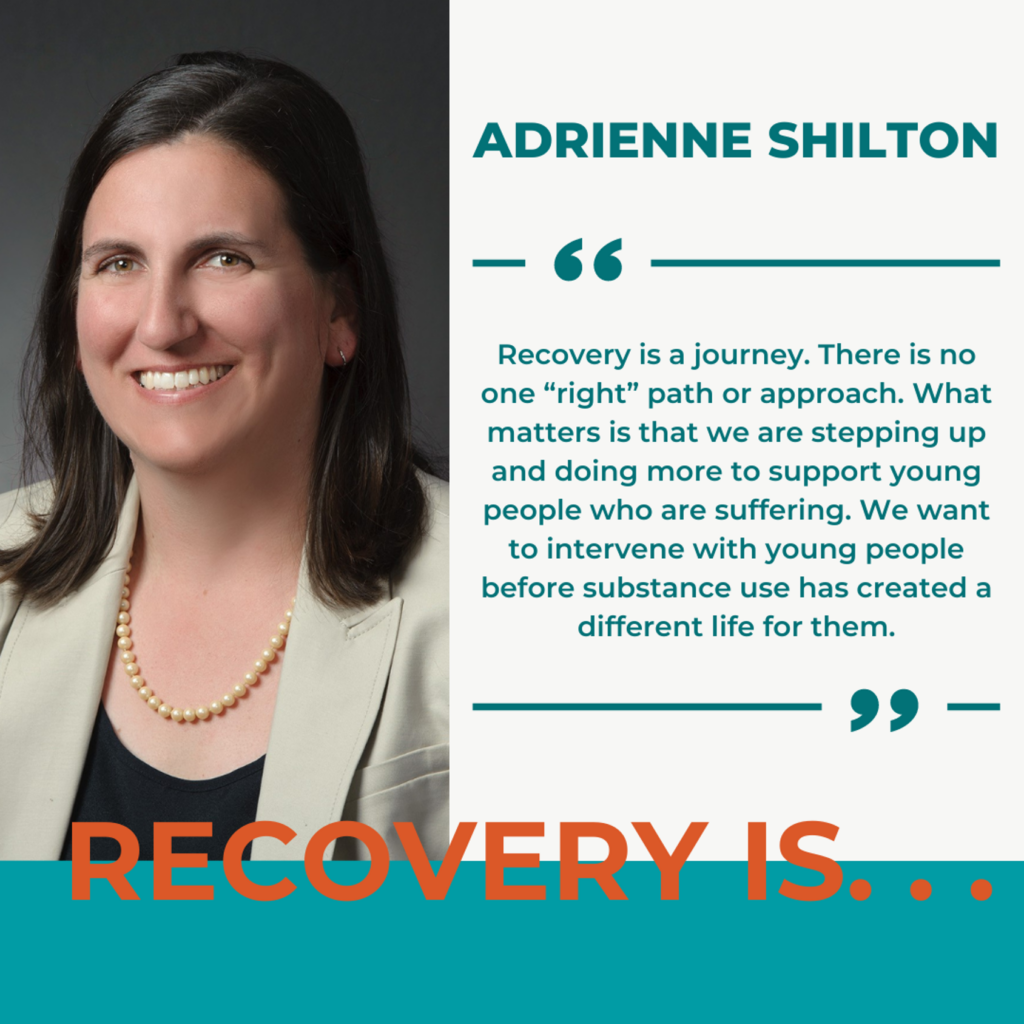Meet Adrienne Shilton: Open Doors Advisory Group Member
posted on: December 9, 2024
category: Advisory Group, News

We are thrilled to introduce Adrienne Shilton, a dedicated member of the Open Doors Advisory Group. Adrienne brings a wealth of experience in public policy and a deep commitment to supporting youth and families in behavioral health and substance use disorder prevention. In this Q&A, Adrienne shares her journey, her role in advancing the goals of the HCAI SUD Training Program, and her vision for recovery.
Dive into Adrienne's inspiring story and learn what motivates her to create meaningful change in the field of behavioral health.
Can you tell us a little about your background and what inspired you to get involved in behavioral health and substance use disorder training?
I was pursuing a degree in public policy when I got connected to the Prop 63 (the Mental Health Services Act) campaign in 2004, and I was inspired immediately. One of my first activities was to tour a program in Long Beach called The Village, an integrated homeless services program run by a non-profit in partnership with the county, and this was what the Mental Health Services Act was all about. When visiting, I saw people at different points in their recovery journeys, many of whom talked about how the program saved their lives. It was so meaningful, and I will never forget those stories. I particularly resonated with the fact that every area of government and policy touches on access to these behavioral health services. I loved the idea of impacting across multiple points in the system.
What is your current role and how does it relate to the goals of the HCAI SUD Training Program “Open Doors”?
My current role is overseeing an amazing policy team at the California Alliance of Child and Family Services, working every day to break down access barriers for our most vulnerable children, youth, and families. Going into the Open Doors project, we’ll be putting pieces together on broadening our reach to adults working with youth, building a training curriculum for prevention and support. It will take all of our organizations working together to make this vision a reality.
What motivated you to join the advisory group for this initiative?
I am motivated by stories from the field including youth with lived experience, and I see this project as grounded in that. Every day, we are trying to create programs that are more innovative, that allow us to intervene earlier in someone’s life, etc. and stories of recovery from youth keep me going. I have to remember the lived experience piece a lot, and talk to family members, because it’s easy to forget when we’re bogged down in details and frustrations. At the end of the day, lots of organizations working in behavioral health have the same goals, but how we get there can vary.
Finish this sentence: "Recovery is . . ."
Recovery is a journey. There is no one “right” path or approach. What matters is that we are stepping up and doing more to support young people who are suffering. We want to intervene with young people before substance use has created a different life for them.